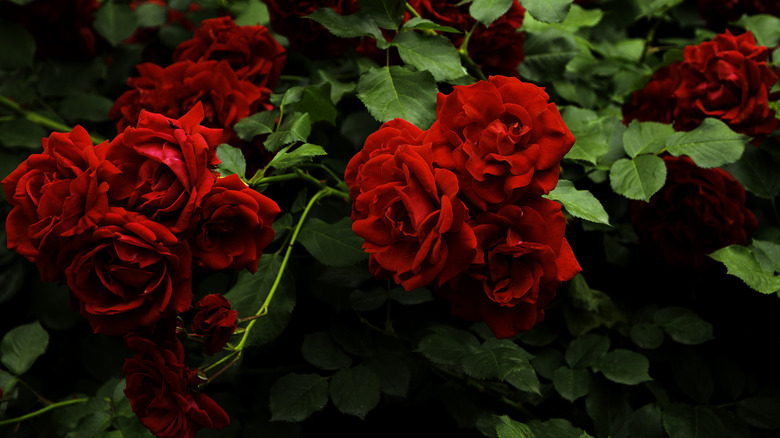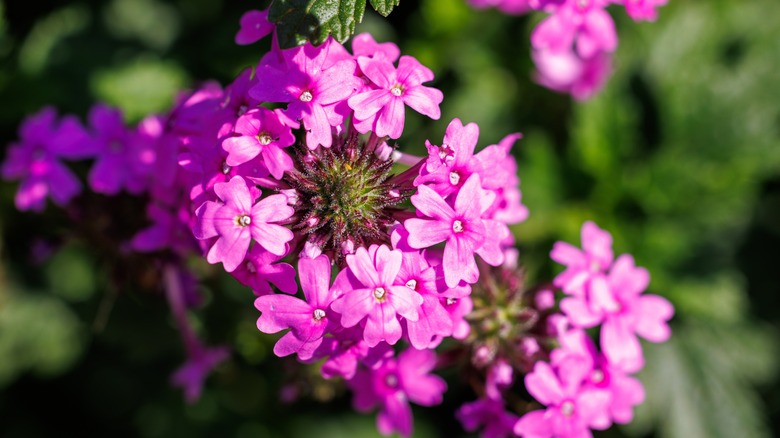The Flowering Ground Cover That Can Protect Your Roses From Weeds
Let's be honest. No one likes weeding, but it's even worse when you get poked and scratched by rose thorns during your efforts. So, using a ground cover to suppress weeds can be incredibly helpful in your rose garden, and when you choose wisely, it can provide visual interest when your roses' blooms have faded. When you're running through your early spring care checklist for your roses, consider planting rose verbena (Glandularia canadensis). This fast-growing groundcover will attract hummingbirds while suppressing weeds and making your life easier. Blooms that will last from spring through the fall are just a bonus.
Rose verbena is native to North America and can be found from Canada down to Florida and Texas in a wide variety of colors, and it's tolerant of many climates. While this plant will thrive almost anywhere during the summer — typically in USDA Zones 5-9 — it's not always winter hardy. Other than possibly needing to be planted every year, rose verbena won't demand much from gardeners. Like roses, it prefers abundant sunlight and well-drained soil. Rose verbena isn't picky about soil type, so adjust to whatever your roses prefer. As long as the ground isn't overly moist, there are no serious pests or diseases to worry about. That should be music to the ears of gardeners who deal with finicky roses.
Tips for growing rose verbena as a groundcover
While rose verbena will grow almost anywhere and tolerates dry conditions, there are a few things to know when you plan to use this plant as a groundcover. The first thing to figure out is how many plants you will need to cover the area in your garden. The plants can grow up to 2 feet wide, with trailing stems that will form roots where they touch the ground. Plant them roughly 12 to 18 inches apart (check the best practices for your variety) to ensure they don't overcrowd one another but close enough to form a dense mat quickly.
Rose verbena can grow to 18 inches tall and will produce clusters of small flowers that naturally appear in hues of pink and purple, though you can find cultivars ranging from white to red. So, keep color in mind when pairing it with your roses. Choosing complementary colors will ensure your garden looks great when the roses are in bloom. If you're convinced that this plant is the right ground cover for your rose garden, explore everything you need to know about planting rose verbena.

